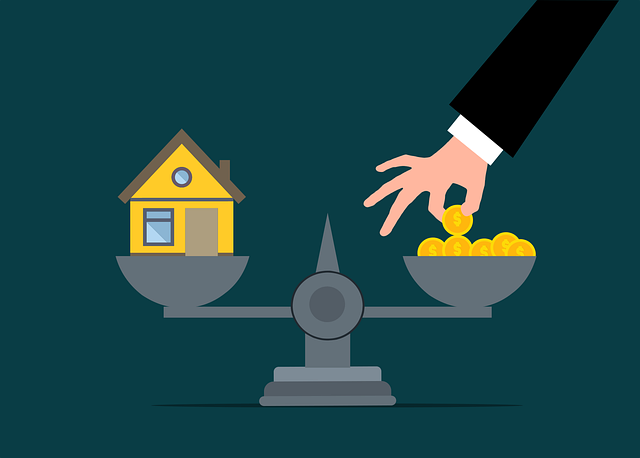Personal Loans for Debt Consolidation are a strategic way to simplify multiple debts. Secured loans, backed by assets like property or vehicles, offer lower interest rates but require collateral. Unsecured loans, relying on creditworthiness, have higher rates but don't need asset pledge. Both methods help manage payments and save money; secured loans are ideal for significant asset-holders while unsecured suits those with good credit history. Understanding these differences is key to choosing the best option for debt consolidation.
Understanding the difference between secured and unsecured loans is key to navigating your financial options. Secured loans, backed by collateral, offer lower interest rates but risk asset loss. Unsecured loans provide access to credit without collateral, but with higher rates. For those seeking debt consolidation, personal loans can be a game-changer, allowing you to combine multiple debts into one manageable payment. This article guides you through these options, helping you make an informed decision for your financial future, especially focusing on the benefits of personal loans for debt consolidation.
- Understanding Secured Loans: Unlocking Your Assets for Funding
- Unsecured Loans: Accessing Credit Without Collateral
- Personal Loans for Debt Consolidation: Comparing Options to Find Relief
Understanding Secured Loans: Unlocking Your Assets for Funding
Secured loans are a type of financing where an individual pledges their assets, such as property or vehicles, as collateral to secure the loan. This act of pledging assets serves multiple purposes for both lenders and borrowers. For lenders, it provides a safety net—if the borrower defaults on repayments, they can seize and sell the asset to recover their losses. For borrowers looking into personal loans for debt consolidation, secured loans offer access to larger sums at potentially lower interest rates compared to unsecured loans.
By using assets as collateral, individuals can unlock funding opportunities that might otherwise be unavailable. This type of loan is particularly attractive for those aiming to consolidate multiple debts into one manageable repayment stream. Secured loans allow borrowers to leverage their assets’ value, providing a more flexible financial solution while potentially saving on interest expenses in the long run.
Unsecured Loans: Accessing Credit Without Collateral
Unsecured loans offer individuals a way to access credit without providing any collateral. Unlike secured loans, which require borrowers to pledge an asset as security, unsecured personal loans are based solely on the borrower’s creditworthiness and repayment ability. This type of loan is particularly attractive for those seeking debt consolidation since it provides an opportunity to refinance multiple debts into one single loan with potentially lower interest rates. By combining several high-interest debts into one manageable payment, borrowers can simplify their financial obligations and save money over time.
Unsecured loans are ideal for folks who own few assets or prefer not to risk losing them as collateral. They allow individuals to borrow funds for various purposes, including personal expenses, home improvements, or even debt consolidation. While unsecured lending provides flexibility, it’s important to note that approval may depend more on credit history and less on the value of an asset. Lenders assess the borrower’s ability to repay based on their income and overall financial situation, making this loan type suitable for those with stable employment and a good credit record.
Personal Loans for Debt Consolidation: Comparing Options to Find Relief
Many individuals seeking financial relief often consider personal loans for debt consolidation as a strategic move. This approach involves taking out a new loan to pay off multiple existing debts, streamlining repayment and potentially lowering interest rates. The main allure lies in simplifying complex debt structures into a single, more manageable payment.
When evaluating options, it’s crucial to differentiate between secured and unsecured personal loans for debt consolidation. Secured loans require collateral, such as your home or vehicle, offering lower interest rates but carrying the risk of asset loss if you default. Unsecured loans, on the other hand, have higher interest rates as they don’t require collateral, making them a riskier proposition for lenders but providing borrowers with greater flexibility in terms of repayment and absence of potential asset forfeiture.
When considering a Personal Loan for Debt Consolidation, understanding the distinction between secured and unsecured options is key. Secured loans leverage your assets as collateral, offering potentially lower interest rates but carrying the risk of asset forfeiture. Unsecured loans, on the other hand, provide access to credit without such collateral requirements, but may command higher interest rates due to the increased risk for lenders. By weighing these differences, you can make an informed decision tailored to your financial situation and goals.
